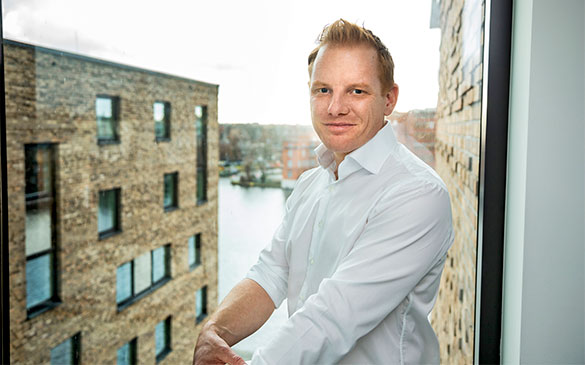Radically rethinking the loop

Mr Krol, how would you summarise the global status quo for the circular economy?
Right now, there are a couple of issues that have pushed the circular economy way up the corporate agenda. The first of these is a sharp rise in public pressure: there are fewer and fewer consumers who are prepared to buy products that ignore sustainability requirements. The second is the overall geopolitical situation, which has again thrown our raw material dependencies into sharp relief. If we’re unable to obtain raw materials by conventional means, then our focus quickly turns to the topics of recycling and the circular economy.
Are there any obvious examples?
There’s a real run on battery recycling at the moment. You need nickel to make new batteries, but old batteries are the only place we can source this from in Germany. At Interzero, we’ve worked with our partners to set up the first fully closed material loop for lithium-ion vehicle batteries on European territory. While recycling batteries isn’t rocket science, reclaiming the raw materials for a manufacturer is something else again. We call this new service of recovering raw material the ‘material account’.
What does Interzero’s material account involve?
Well, it’s not merely a new tool but a change to the actual business model used by the waste management industry. The conventional approach is for the waste management company to collect customer waste and then dispose of it or recycle it. However, this means that these materials have virtually no chance of becoming a new product of the same type as the waste product. In addition, customers also lose access to something truly valuable – namely, a potential stock of raw materials for their future products.
So how does the material account change this principle?
The customer decides what happens to the raw materials. In effect, the raw materials are physically ‘deposited’ in an account. Interzero then works with customers to develop an end-toend recycling path, including raw material returns to a location of their choice – i.e. the factory or the supply chain. At the end, customers see this movement physically on the account. If the customer has deposited 1,000 kg of aluminium waste in their material account, then this can be recycled into around 800 kg of aluminium, which then shows up on their account and is effectively available to be ‘paid out’.
How do you see the circular economy developing?
I think that an awareness of resources and raw materials will continue to grow. We need to create a world where the closed-loop economy is a basic requirement. The first of our natural resources will start to run out over the next decade. A circular economy is one way to counter this problem.


